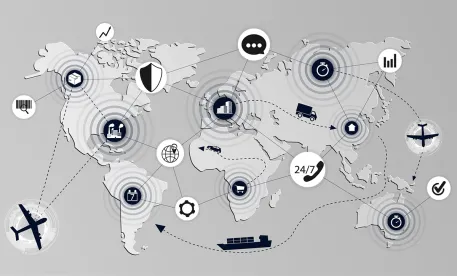Continuing the trend toward increased oversight of forced labor in supply chains (see our post from last week on groundbreaking German legislation in this space), on March 18, 2021, the US Senate Finance Committee will hold a hearing on “fighting forced labor.” Specifically, the hearing will focus on “[c]losing the loopholes and improving customs enforcement to mandate clean supply chains and protect workers.” This may signal a continued trend in the US to combat forced labor in the supply chains of domestically imported products.
This trend began in February 2016, when President Obama signed the Trade Facilitation and Trade Enforcement Act (TFTA) of 2015. This law repealed the “consumptive demand” loophole in the Tariff Act of 1930, which allowed the importation of certain forced labor-produced goods if the goods were not produced “in such quantities in the United States as to meet the consumptive demands of the United States.”
By closing this loophole, the TFTA strengthened U.S. Customs and Border Protection’s (CBP) ability to target, restrict, and issue Withhold Release Orders (WRO) to detain or exclude suspect shipments – and the statistics show that this is happening. From 2000 and 2015, no WROs or formal findings were issued. Today, there are a total of 47 active WROs and 7 formal findings.
In general, CPB has the authority to issue a WRO when information “reasonably” indicates merchandise was mined, produced or manufactured, wholly or in part, in any foreign country by forced or indentured labor – including forced child labor. If the CPB determines that this relatively low standard of proof has been met, the burden then shifts to the importer to prove that the goods in question were not made using prohibited labor. Furthermore, upon sufficient evidence of forced labor, CPB will publish their formal findings on the Customs Bulletin and in the Federal Register.
Notwithstanding this increased authority, it is unclear what exact “loopholes” or “improvements to customs enforcement” will be discussed during the upcoming hearing. At a minimum, we can anticipate a continued trend to combat forced labor in the supply chain of domestically imported products. Last month the Finance Committee Chairman Ron Wyden (D-OR) stated that the panel would “put a special focus on ending the import of goods produced with forced labor.”
To that end, while no government witness will appear, at least four industry and NGO witnesses will testify, including representatives of the United Steelworkers, the Human Trafficking Law Center, the United States Fashion Industry Association, and Sourcemap, which is a supply chain tracking company.
As such, in anticipation of increased legislative oversight, companies should consider revisiting a few best practices for global supply chains, including: (1) developing a comprehensive supply chain map and profile to understand the entirety of the chain of production, from raw materials to finished goods; (2) requiring a written code of conduct for all suppliers, including minimum labor standards; and (3) conducting regular risk assessments and audits to detect and deter the use of forced labor. While some or all of these practices have traditionally been auditing functions in many companies, now may be an opportune time to transfer their management to the legal department, to ensure compliance with the developing laws in this area, and to receive the protection afforded by the attorney-client privilege.
The opinions expressed are those of the author(s) and do not necessarily reflect the views of the Firm, its clients, or any of its or their respective affiliates. This article is for general information purposes and is not intended to be and should not be taken as legal advice.






 />i
/>i
